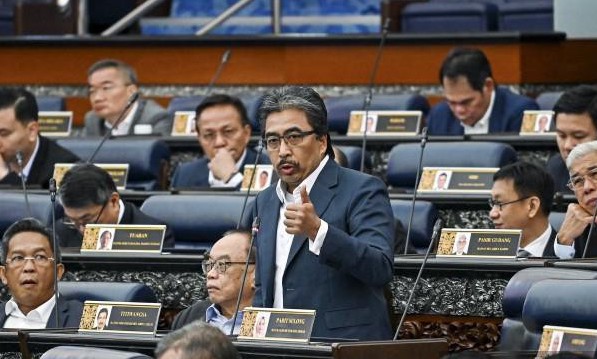By Datuk Chang Kim Loong
I WOULD like to start by featuring a news article published by the New Straits Times on Sept 30, 2019 entitled “Review Fees for Loan Documents: Banks’ practice against the law, a burden to customers, says Bar Council” as follows:
The Bar Council, Malaysia said it is high time for banks to review its practice of imposing fees for loan documents.
Bar Council conveyancing practice committee (immediate past) chairman Datuk Roger Tan said the practice was against the law and has become a burden which consumers could do without. He said the fee was imposed on the banks’ loan documents, which borrowers sign when taking, for example, a housing loan. These documents are largely standardized documents for each bank.
“The bank’s solicitors will typically download the documents from the bank’s website and, after completing the particulars relating to the borrower and the loan, print for the borrower’s signature,” said Tan.
He said banks currently charge a fee for the ‘purchase’ of these documents ranging from RM100 to RM500, even though the cost of printing the documents is borne by the solicitors.
He cautioned against imposing the fees as the sale of loan documents was a breach of Section 37(2) of the Legal Profession Act 1976. That subsection states that any unauthorised person either directly or indirectly draws or prepares documents relating to any immovable property for or in expectation of any fee or gain shall be guilty of an offence under that subsection.
——————————————————————————————————————
The National House Buyers Association (HBA) concurs with the Bar Council. On Oct 3, 2019, we have reported on this dilemma but it seems our pleas fell on deaf ears.
Prior to it, we have voiced out on this as early as 2013, written several articles on the issues related to “Simplified housing Loan Agreement” as well as HBA’s stand against banks’ sale of forms. (Banks in this context refers to commercial banks, Islamic banks, financial institutions and financial service providers).
Law firms undertaking bank’s work had to purchase standardised pre-printed forms or, typically download the documents from the bank’s portal for a price. The prices can range from RM100 to RM500. There are instances where the price is higher.
Such expenses are, of course, are passed down to the customer/ borrower as disbursements, usually under the column “purchase of bank’s printed forms”. Can they not produce a soft copy to be made available to law firms to adopt and print at their own cost and expense?
After all, printing charges are only limited to RM50, as approved by the Bar Council.

PEMUDAH Technical Working Group on Getting Credit (TWGGC)
We had the opportunity at a recent meeting on April 28 in PEMUDAH: Technical Working Group on Getting Credit (TWGGC), initiated by Malaysia Productivity Corporation (MPC) to reiterate our stand to the committee, which was chaired by Datuk Pardip Kumar Kukreja, attended by the permanent members from the Association of Banks, Malaysia (ABM), Association of Islamic Banking & Financial Institution (AIBIM), Bar Council, Malaysia, Real Estate & Housing Developers Association (REHDA) and Bank Negara, Malaysia (BNM).
At the meeting, the bankers had the audacity to suggest that their institutions were not prohibited to charge “fees” on standard loan documents. They even elaborated that there were no regulations forbidding banks from doing so. If such acts are allowed, when attempting to regulate, there will be an issue of competition, as alleged by the banker. They even emphasised that Bank Negara Malaysia (BNM) does not have power over the Competition Act, 2010.
BNM, stood by the bankers and even clarified those banks do not sell standard forms but the “fees” levied reflect the actual costs incurred in “developing standardised loan documents”; with manpower involved in reviewing the documents and thus, the cost is recovered via the “fees”.
It is really mind-boggling how the bankers could have come out with the defence under Competition Act when senior Bar Council member, Datuk Roger Tan has repeatedly emphasised that it is an offence under section 37(2) of the Legal Profession Act, 1976 for any unauthorised person who either directly or indirectly draws or prepares any document or instrument relating to any immovable property for or in expectation of any fee, gain or reward. In other words, if it is free of charge, no offence will be committed.
Now the question is, this sale of standard form for a “fee” has been going on since 2013. Surely, such costs must have been amortized over a period of time. Must the banks continue to profit from sale of forms? Isn’t their major source of income derived from giving out loans? Surely, bringing the Competition Act into the equation has got nothing to do with sale of printed forms. Contrary to BNM’s assertion that the banks do not sell the forms, doesn’t the act of charging a “fee” imply the forms are sold “at a price”, which in this case is referred to as a “fee”?
BNM’s policies have always been in line with the Government’s aspirations especially when it comes to allocating funds for promoting affordable housing category. Then, why are buyers of affordable housing still having to stomach the “fee”?
Exorbitant fees for simple letters
The banking sector in Malaysia is a tightly regulated industry. Any fees that banks intend to charge must be approved by BNM. It is disheartening to note that borrowers continue to be charged exorbitant fees even under the watchful eyes of BNM. Instances of borrowers being charged unreasonable fees for copies of redemption statement, EPF statements letter and others are common.

Has the terms & conditions become consumer friendly?
For too long, loan borrowers have been at the losing end as many do not fully understand the terms and conditions (T&C) stated in housing loans or financing contracts. Even if they do understand them, they know all too well the bargaining power is not in their hands. They have to accept those terms or risk having their loan applications rejected.
In reality, the bargaining powers of the parties to a loan agreement are different and never equal. The parties seldom deal on equal terms. In today’s commercial world, the reality is that if a customer wishes to buy a product or obtain services, he has to accept the terms and condition of a standard contract prepared by the other party. The parties in the instant case, are no different. They have unequal bargaining powers between the banks and their customers. It is unconscionable on the part of the bank to seek refuge behind the clauses and an abuse of the freedom of contract
Thus, when BNM stepped up and voiced their concerns over mortgage agreements which are disproportionately skewed towards banking institutions, we applaud the announcement.
Since then, BNM has on Nov 6, 2019, come up with a policy document titled “Fair Treatment of Financial Consumers” (FTFC) outlining how banks should be responsive to the needs of financial consumers and conduct their businesses in a way which engenders trust and confidence, leading to a high customer satisfaction and retention and provide sustained business performance over the long term. That’s a real mouth full (pun intended).
Appendix 1 to the FTFC policy statement states inter-alia:
Sub-para (d): ‘does not impose excessive or unreasonable fees and charges that do not reflect the actual costs incurred in the provision of services offered or which significantly disadvantage certain groups of financial consumers’.
Now has those policy statements been translated to actual and factual adherence? Has BNM conducted their annual audit check on banks including compliance and adherence of the newly minted ‘consumers friendly policies’? Has BNM or at the least with the assistance of ABM and AIBIM identified the ‘Good’ verses ‘Poor’ practices to arrive at ‘Fair’ practices?

BNM to balance the scale
Surely, BNM cannot be waiting for the Federal Court to intervene again before it decides to act on it just like in the case of the British borrower Anthony Lawrence Bourke and wife who succeeded in declaring that it was unconscionable for banks to seek refuge behind exclusion clauses.
BNM must lead and spare a thought for borrowers and law-firms who are often at the mercy of this unequal bargaining with the banks. BNM has a comprehensive legal power to regulate, to supervise and monitor all participating financial systems and to crack their whip.
Similarly, the Finance Ministry, ABM & AIBIM have a legitimate interest in the final shape of the banking industry as being one that is principled and “customer friendly” and we sincerely hope banks heed the call. – July 4, 2021.
Datuk Chang Kim Loong is the honorary secretary general of the National House Buyers Association (HBA).
The views expressed are solely of the author and do not necessarily reflect those of Focus Malaysia.










